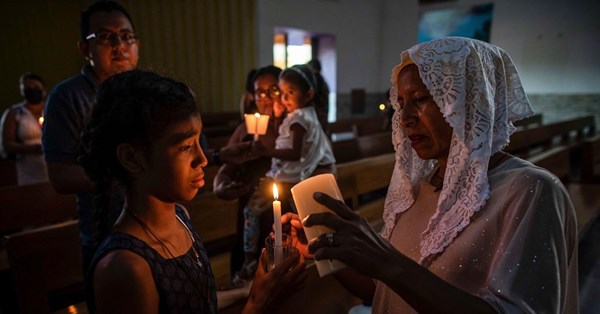HOLY Week processions have been banned in Nicaragua for a second year, as repression of the Roman Catholic Church by the government intensifies.
Limited services are permitted indoors, but the traditional processions in the streets have been banned, with a repetition of last year’s intimidation by police of priests, to ensure that they complied, an exiled lawyer said.
Many priests have been exiled, and those who remain are required to present themselves at police stations to have their sermons approved (News, 14 March). Individual bank accounts of some clergy have also been frozen, and some are now facing food and medicine shortages.
Human rights, including religious freedom, have been deteriorating for years under President Daniel Ortega’s regime. Protests begun by students against the government in 2018 have been systematically and brutally crushed (News, 25 May 2018). The RC Church’s support for protesters and its criticism of the regime have led to increasing targeting of clergy and worshippers.
Earlier this year, the National Assembly declared President Ortega’s wife, Rosario Murillo, Co-president. They withdrew Nicaragua from the UN Human Rights Council in February after a UN report on deteriorating human rights and religious freedoms.
More than 80 per cent of Nicaraguans are Christian. The US government’s Commission on International Religious Freedom last month said that conditions in Nicaragua were “abysmal”. It said that last year thousands of police had been deployed on the streets to prevent Easter processions.
The charity International Christian Concern said that, in some places, the government ran parallel street events designed to give the impression of religious activity.
A lawyer, Martha Patricia Molina, who fled Nicaragua to live in exile in Texas, catalogues the repressive measures against the RC Church by the Ortega-Murillo administration. She said that the administration had banned 11,763 religious processions and events in the past five years, “and this Lent of 2025 is no exception.”
She told the Church Times: “Since the beginning of this liturgical season, the police have come to intimidate priests to warn them not to take out the processions as they were customarily carried out before 2019, because Nicaragua is a Catholic and devout country. The police have threatened the priests to arrest them if they disregard the orders issued by the Ortego-Murillo dictatorship.”
She referred to one example, the Church of San Francisco de Asis, which was holding its solemn procession indoors rather than outside, owing to restrictions.
Out of eight bishops and one cardinal in Nicaragua’s Bishops’ Conference, four are in exile — with more than 150 clergy and seminarians, as well as nearly 100 nuns and religious Sisters who were exiled, fled for their safety, or have not been allowed back to Nicaragua, according to Ms Molina’s research.
Many have been exiled to the US or to the Vatican (News, 19 January 2024), including Bishop Rolando Alvarez, who was imprisoned for a year before being exiled after negotiations with the Holy See.

















